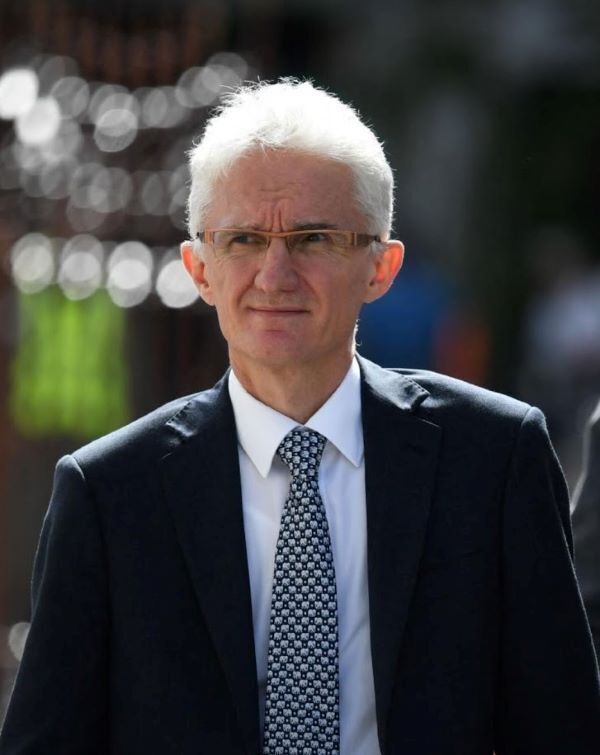Mark was the United Nations Under-Secretary-General for Humanitarian Affairs and Emergency Relief Coordinator from May 2017 through June 2021. Prior to his appointment in the UN, he served as the permanent secretary for the United Kingdom’s Department of International Development. Mark has spent 35 years leading responses to humanitarian crises across the globe. Recently, he authored a book titled Relief Chief: A Manifesto for Saving Lives in Dire Times. In this episode, he talks about the common causes of humanitarian suffering around the globe, the organizations working hard to make an impact, the issues that arise from focusing on treating the symptoms rather than the root cause, and how regular people can get involved in making a difference.
“Conflict, climate change, COVID and other diseases are what contributes to humanitarian suffering. And so you have to address the causes of those problems if you want to see the number of people suffering for as well as providing immediate help to the people to get them through until the causes can be addressed,” explains Mark Lowcock, United Nations Under-Secretary-General for Humanitarian Affairs and Emergency Relief Coordinator from May 2017 through June 2021. Prior to his appointment in the UN, he served as the permanent secretary for the United Kingdom’s Department of International Development. Mark has spent 35 years leading responses to humanitarian crises across the globe. He was twice awarded medals by Queen Elizabeth II for services to international development and public service, including reaching Knighthood in 2017. Recently, Mark authored a book titled Relief Chief: A Manifesto for Saving Lives in Dire Times. Today, he joins host Tiffany Zehara to talk about how humanitarian crises are handled and how ordinary everyday people can get involved.
Listen to, or watch, the full podcast interview by Tiffany Zehara with Mark Lowcock on your preferred podcast channel.
In this podcast, the host covers:
-
How did Mark get his start working in humanitarian affairs and emergency relief?
-
How can people target the root causes of suffering instead of focusing only on the symptoms?
-
How is climate change contributing to humanitarian crises on a global scale?
-
Why is it better to give money to people in need vs help in kind?
-
What is something people can do to promote more peace and compassion in the world?

Podcast Quotes:
-
“The way this system has been created is that there are lots and lots of agencies, lots of UN agencies, the Red Cross family, 1000s of NGOs, and to some degree, they are both collaborating with each other. But they're also competing with each other for resources and donors in particular, and to some degree, they have overlapping mandates.” (7:21-7:44 | Mark)
-
“A good outcome is not that one agency gets all the money, because no one agency can fix the problem. A good outcome is where there's enough money for everybody to spread in the fair way as possible.” (9:19-9:30 | Mark)
-
“Conflict, climate change, COVID and other diseases are what contributes to humanitarian suffering. And so you have to address the causes of those problems if you want to see the number of people suffering for as well as providing immediate help to the people to get them through until the causes can be addressed.” (12:13-12:31 | Mark)
-
“If you just address symptoms and not causes, don't be surprised if things keep getting worse.” (21:17-21:22 | Mark)
-
“One of the ways in which people caught up in humanitarian crises are stripped of their humanity is by losing their ability to control and determine things in their own lives. And if you can give people cash that gives them some of that dignity and freedom and humanity back.” (23:40-23:56 | Mark)
-
“Empathy grows, actually curiously, when our own challenges grow.” (30:07-30:13 | Mark)
About the Podcast Guest:
To purchase Mark Lowcock’s book visit (Relief Chief: A Manifesto for Saving Lives in Dire Times).
About the Humanitarian Entrepreneur podcast:
The Humanitarian Entrepreneur podcast is all about changing the world on your own terms. We use it to connect fellow global activists like you and redefine how we can make a difference in the world through coaching, education, and resources.
Listen to, or watch, the full podcast interview by Tiffany Zehara with Mark Lowcock on your preferred podcast channel.
Media Communications
Inquiries: [email protected]
Media contact and published by PodAmp.fm [email protected]
Published by: Dax Hamman
Source: PodAmp.fm
Release ID: 513668

